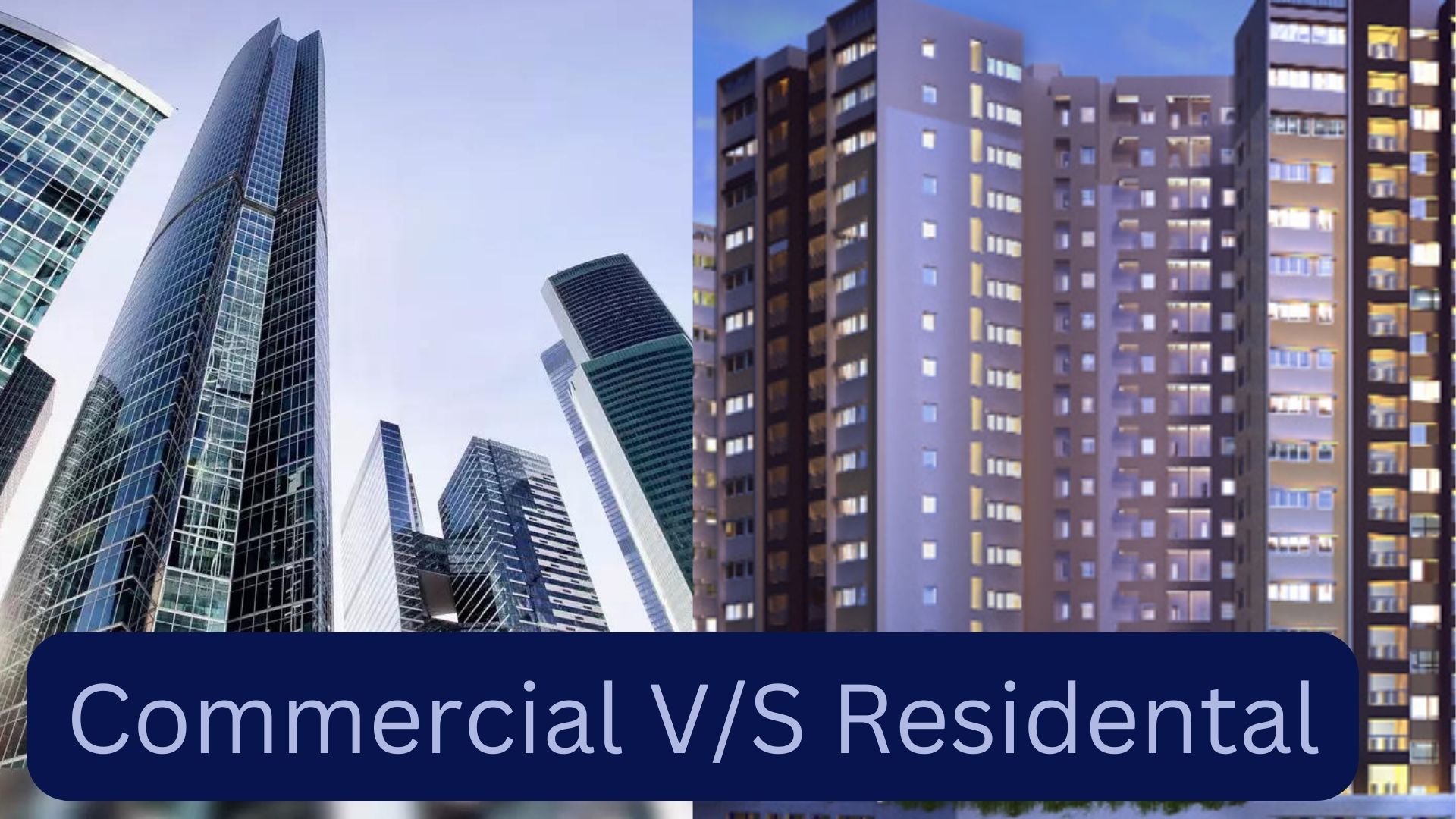Investing in commercial property differs from investing in residential property in several key aspects. Here's a comparison of the two investment approaches:
1. Property Type:
● Commercial Property: Commercial properties include office buildings, retail centers, industrial warehouses, hotels, and other structures used for business purposes.
● Residential Property: Residential properties encompass single-family homes, apartments, condominiums, townhouses, and other dwellings primarily intended for residential living.
2. Income Generation:
● Commercial Property: Income is typically generated through leases with businesses, where tenants pay rent based on square footage or other agreed-upon terms. Lease terms are usually longer, and rental rates may be higher compared to residential properties.
● Residential Property: Income is generated through rental agreements with individuals or families seeking housing. Lease terms are often shorter, and rental rates may be subject to fluctuations influenced by local market conditions and demand.
3. Tenant Relations:
● Commercial Property: Tenant relationships tend to be more business-oriented, with leases negotiated based on factors such as tenant creditworthiness, industry stability, and property use. Property management may involve handling larger-scale operations and addressing commercial tenant needs.
● Residential Property: Tenant relationships are more personal, involving
interactions with individual or family renters. Property management may
focus on addressing tenant concerns, ensuring property upkeep, and
managing turnover.
4. Market Dynamics:
● Commercial Property: Market trends are influenced by factors such as business growth, economic indicators, industry demand, and demographic shifts. Commercial property values and rental rates may be more closely tied to economic conditions and local market drivers.
● Residential Property: Market trends are influenced by factors such as population growth, housing affordability, interest rates, and lifestyle preferences. Residential property values may be influenced by factors like school quality, neighborhood amenities, and community development.
5. Risks and Rewards:
● Commercial Property: Investing in commercial properties may offer potentially higher returns but also involves greater risks, such as economic downturns, tenant vacancies, and market volatility. Investors may benefit from diversification across different property types and locations.
● Residential Property: Investing in residential properties may offer more stable returns but may involve risks such as tenant turnover, property maintenance, and market saturation. Investors may benefit from focusing on desirable locations with strong rental demand.
What Are The Different Types Of Commercial Real Estate?
Commercial real estate encompasses a variety of property types, each serving different business purposes. Here are some common types of commercial real estate:
1. Office Buildings: ● Office buildings are properties designed for professional and administrative activities. They range from single-tenant to multi-tenant buildings and may include high-rise towers, suburban office parks, and mixed-use developments.
2. Retail Centers: ● Retail centers are properties where goods and services are sold to consumers. They include shopping malls, strip malls, neighborhood centers, and standalone retail stores.
3. Industrial Properties: ● Industrial properties are used for manufacturing, warehousing, distribution, or research and development. They include warehouses, manufacturing facilities, distribution centers, flex spaces, and industrial parks.
4. Hospitality Properties: ● Hospitality properties provide accommodations and services for travelers. They include hotels, motels, resorts, bed and breakfasts, and vacation rentals.
5. Multifamily Residential:
● Multifamily residential properties consist of multiple housing units within
a single building or complex. They include apartment buildings, townhouses, and mixed-use developments with residential
components.
6.Special Purpose Properties: ● Special purpose properties serve specific business or community needs. They include: ● Healthcare facilities: Hospitals, medical offices, clinics, and assisted living facilities. ● Educational facilities: Schools, universities, colleges, and daycare centers. ● Entertainment venues: Movie theaters, sports arenas, concert halls, and amusement parks. ● Religious facilities: Churches, temples, mosques, and synagogues. ● Government buildings: Courthouses, post offices, municipal offices, and military installations.
7. Land:
● Land is undeveloped or partially developed property that may be used for
future commercial development, such as office complexes, retail centers,
industrial parks, or residential subdivisions.


